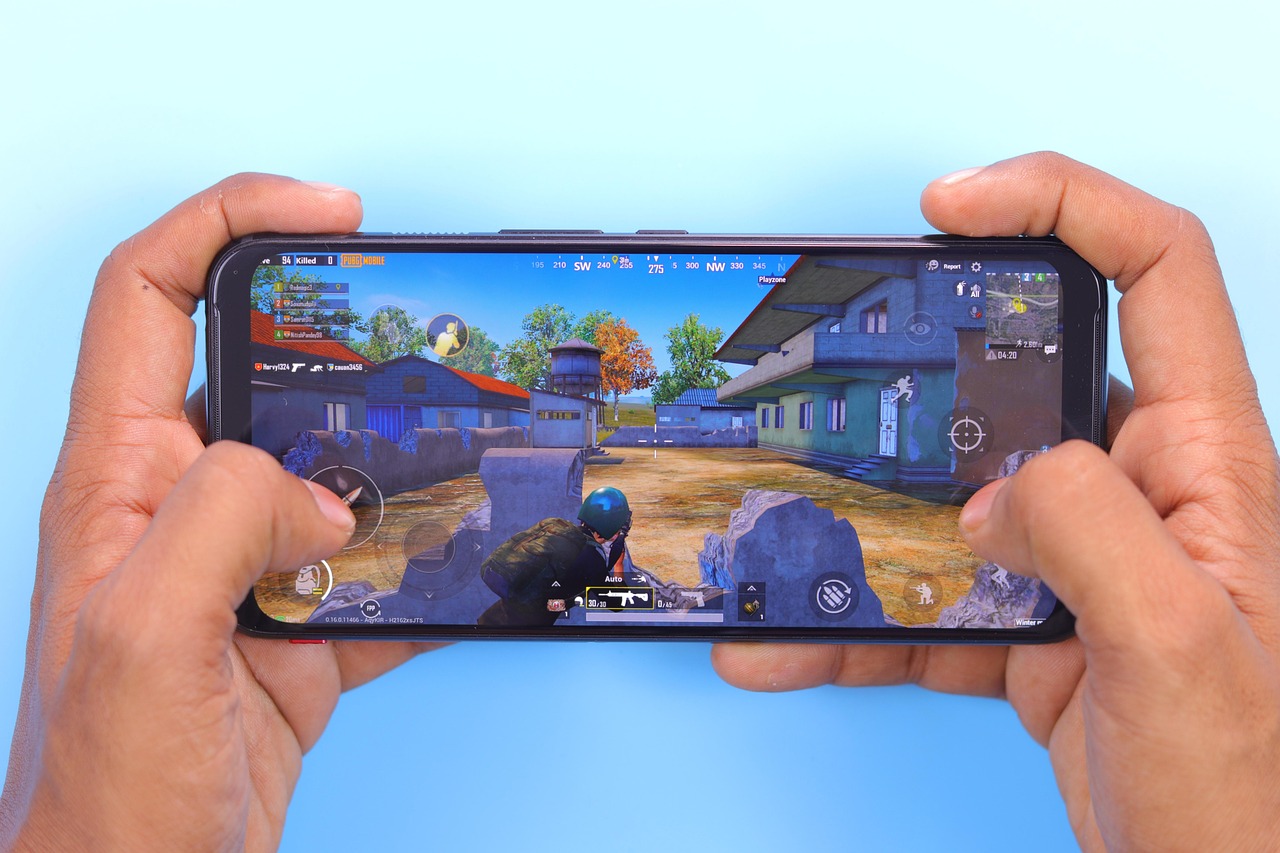What began as a casual way to pass time on the go has exploded into one of the most powerful forces in modern entertainment. In just a decade, mobile gaming has reshaped the industry—bringing immersive, innovative experiences to our fingertips and redefining who gets to call themselves a gamer. These aren’t just quick distractions; they’re global phenomena, genre-defining milestones, and cultural touchstones that have shaped how we play, connect, and compete. In this roundup, we spotlight 10 mobile games that earned their place in the gaming Hall of Fame—each one a trailblazer in its own right. From addictive mechanics to groundbreaking design, these titles didn’t just ride the mobile wave—they helped create it.
1. Angry Birds: The Pioneering Phenomenon

Launched in 2009, Angry Birds quickly became a cultural sensation, introducing players to a world of slingshot-fueled fun. Its simple yet addictive gameplay, combined with charming graphics and humor, captured the hearts of millions. The game's success is attributed to its intuitive mechanics that appeal to all age groups and its ability to expand into a multimedia franchise, including movies and merchandise. Angry Birds set a new standard for mobile gaming, proving that a simple concept could achieve monumental success, and paved the way for future mobile game developers.
2. Candy Crush Saga: The Match-Three Revolution

Candy Crush Saga, released by King in 2012, transformed the match-three puzzle genre into a global phenomenon. Its vibrant visuals, satisfying sound effects, and progressively challenging levels kept players engaged for hours. The game's freemium model, offering in-app purchases for additional moves and boosts, revolutionized monetization strategies in mobile gaming. Candy Crush's social integration, allowing players to compete with friends, further fueled its addictive nature. As a trailblazer in the casual gaming market, Candy Crush Saga demonstrated the immense potential of mobile games to generate significant revenue and cultivate a dedicated player base.
3. Pokémon GO: Augmented Reality's Breakthrough

In 2016, Pokémon GO took the world by storm, blending augmented reality with location-based gameplay to create an unprecedented experience. Players became real-world Pokémon trainers, exploring their surroundings to capture virtual creatures. The game's innovative use of AR technology and its nostalgic appeal to Pokémon fans contributed to its massive success. Pokémon GO not only encouraged physical activity but also fostered community engagement through events and collaborations. Its impact on mobile gaming is profound, showcasing the possibilities of AR and setting a benchmark for future games in the genre.
4. Clash of Clans: The Strategy Game Titan

Supercell's Clash of Clans, released in 2012, redefined mobile strategy games with its engaging base-building and real-time combat mechanics. Players could form clans, strategize attacks, and compete in global tournaments, creating a sense of camaraderie and competition. The game's success lies in its balance of accessibility and depth, appealing to both casual and hardcore gamers. Clash of Clans' innovative use of microtransactions and regular updates kept the player community thriving. Its influence is evident in the numerous strategy games that followed, solidifying its place as a cornerstone in mobile gaming history.
5. Monument Valley: An Artistic Masterpiece

Monument Valley, developed by Ustwo Games in 2014, captivated players with its stunning visuals and mind-bending puzzles. The game's minimalist design and use of optical illusions created a unique, immersive experience that challenged players' perceptions. Monument Valley's narrative, though simple, resonated with players, adding an emotional layer to the gameplay. Its success demonstrated that mobile games could be both artistic and commercially successful, inspiring developers to explore new creative possibilities. Monument Valley's legacy is its contribution to the recognition of games as an art form, elevating the standards for visual storytelling in mobile gaming.
6. Temple Run: The Endless Runner Pioneer

Temple Run, released by Imangi Studios in 2011, introduced players to the exhilarating world of endless runners. The game's simple swipe controls and fast-paced action made it an instant hit, inspiring countless imitations and adaptations. Temple Run's success is attributed to its addictive gameplay loop, where players strive to beat their high scores while navigating treacherous paths. The game's influence is seen in the proliferation of endless runner games, each attempting to capture the magic of Temple Run. Its legacy is a testament to the power of simplicity in game design and the enduring appeal of high-score challenges.
7. Fortnite Mobile: Battle Royale on the Go

Epic Games' Fortnite Mobile, launched in 2018, brought the wildly popular battle royale genre to mobile devices, allowing players to experience the full Fortnite experience on the go. Its cross-platform play and seamless integration with console and PC versions set a new standard for mobile gaming. Fortnite Mobile's vibrant graphics, dynamic gameplay, and frequent updates kept the player base engaged and expanded the game's reach. The game's success on mobile platforms demonstrated the viability of complex, large-scale games on smartphones, influencing the development of future mobile titles and cementing Fortnite's status as a cultural phenomenon.
8. Among Us: Social Deduction's Viral Hit

Among Us, developed by InnerSloth and released in 2018, gained massive popularity in 2020, thanks to its engaging social deduction gameplay. Players work together to complete tasks on a spaceship while identifying impostors among them. The game's simple graphics and mechanics belie its depth, as it fosters communication, strategy, and deception. Among Us became a staple in online communities and streaming platforms, highlighting the power of social interaction in gaming. Its success underscores the potential for indie games to achieve mainstream recognition and demonstrates the importance of word-of-mouth and community engagement in the digital age.
9. Hearthstone: Card Battling Excellence

Blizzard Entertainment's Hearthstone, released in 2014, brought the world of collectible card games to mobile devices with its polished design and strategic depth. Players build decks from a vast array of cards and compete in turn-based battles, requiring skill and foresight. Hearthstone's success is due to its accessible mechanics, regular content updates, and engaging competitive scene. The game's influence extends beyond mobile gaming, impacting the broader card game genre and inspiring similar titles. Hearthstone's legacy is its demonstration of how traditional gaming experiences can be successfully translated to mobile platforms, maintaining depth and complexity.
10. Genshin Impact: Open World Exploration

Genshin Impact, developed by miHoYo and released in 2020, redefined mobile gaming with its expansive open-world design and high-quality graphics. Players explore the vast land of Teyvat, engaging in combat, solving puzzles, and uncovering a rich narrative. The game's success is attributed to its free-to-play model, supported by microtransactions, and its cross-platform capabilities. Genshin Impact's influence is seen in its ability to deliver a console-quality experience on mobile devices, challenging perceptions of what mobile games can achieve. Its impact on the industry is profound, setting new standards for mobile game development and player expectations.
The Legacy of Mobile Game Legends

The journey through these 10 legendary mobile games reveals the diverse and dynamic nature of the mobile gaming industry. Each game, with its unique contributions, has shaped the landscape of mobile gaming, pushing boundaries and setting new standards. From pioneering gameplay mechanics to innovative use of technology, these games have earned their place in the Hall of Fame. As mobile gaming continues to evolve, these legends serve as benchmarks for future developers, inspiring creativity and innovation. Their enduring popularity and cultural impact underscore the significance of mobile games in the broader gaming ecosystem, highlighting their role in shaping the future of entertainment.







